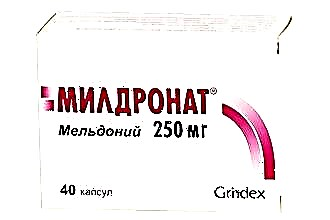Unpleasant sensations when swallowing is a symptom that accompanies most ENT diseases. Discomfort in the throat is most often associated with the occurrence of inflammatory processes in the mucous membranes of the respiratory tract. Squeezing, tickling, itching, burning and choking can signal the development of angina, pharyngitis, laryngitis, mononucleosis, etc.
 Only a specialist can accurately determine the type of pathology after the patient undergoes manometry, X-ray and pharyngoscopic examination. With the appearance of discomfort in the pharynx, many patients develop carcinophobia (fear of detecting a malignant tumor). However, postponing a visit to a specialist can aggravate well-being and provoke asphyxia.
Only a specialist can accurately determine the type of pathology after the patient undergoes manometry, X-ray and pharyngoscopic examination. With the appearance of discomfort in the pharynx, many patients develop carcinophobia (fear of detecting a malignant tumor). However, postponing a visit to a specialist can aggravate well-being and provoke asphyxia.
Etiology
Why is there a discomfort in the throat when swallowing? Often, unpleasant sensations when swallowing saliva occur due to psycho-emotional overstrain. Constant stress, irritation, depression can lead to overstrain of the muscles located in the lower part of the pharynx. Thus, a so-called "hysterical lump" is formed in the airways, which disappears on its own within a few hours.
Pain and a feeling of a lump in the throat can occur as a result of dysfunction of certain organs and systems, trauma, or the development of an infectious disease. Common factors that cause discomfort in the throat include:
- an allergic reaction;
- low air humidity;
- smoking;
- inflammation of the gums;
- oncological pathologies;
- endocrine disorders;
- infectious inflammation of the pharynx;
- mechanical damage to ENT organs;
- chronic diseases.
If the sensation of a coma in the throat is accompanied by an increase in regional lymph nodes, hyperthermia and weakness, in 95% of cases this indicates the development of septic inflammation in the respiratory organs.
Concomitant symptoms
 What to do if the swallowing reflex is disturbed? It should be noted that dysphagia can be accompanied by inflammation not only of the pharynx or larynx itself, but also of the esophagus. Failure to undergo therapy can lead to swelling of the tissues of the oropharynx and, accordingly, narrowing of the airway.
What to do if the swallowing reflex is disturbed? It should be noted that dysphagia can be accompanied by inflammation not only of the pharynx or larynx itself, but also of the esophagus. Failure to undergo therapy can lead to swelling of the tissues of the oropharynx and, accordingly, narrowing of the airway.
You can not postpone a visit to the doctor if the following symptoms occur:
- constipation and blood impurities in the stool;
- significant weight loss;
- labored breathing;
- persistent dizziness;
- stomach ache;
- "Metallic" taste in the mouth;
- hoarse voice;
- difficulty swallowing food;
Important! If a sharp sore throat occurs, accompanied by fever, the patient should be hospitalized.
Throat hyperemia and high temperature, which lasts more than 2 days, indicates septic inflammation of the mucous membranes of the ENT organs. To stop catarrhal processes and prevent complications, you need to undergo a course of antibacterial or antiviral therapy, which can only be prescribed by a doctor.
Lump in the throat
Sometimes it is unpleasant for the patient to swallow, but the throat does not hurt. The absence of pain and temperature may indicate hypertrophy of the mucous membranes of the pharynx and chronic diseases. But most often the cause of the appearance of a lump in the throat is nervous tension.
The emergence of an unpleasant symptom rarely signals the development of oncological pathologies. In 70% of cases, discomfort disappears without therapy after 4-5 days. But if the sensation of a lump in the throat persists for a week, it is advisable to be examined by an otolaryngologist. The main causes of discomfort include:
- dysfunction of the thyroid gland;
- side effects of medications;
- chronic pharyngitis;
- impaired functioning of the gastrointestinal tract;
- cervical osteochondrosis.
The presence of a sour taste in the mouth can signal the penetration of gastric juice into the esophagus. It contains aggressive acids that can damage the mucous membrane of the pharynx and provoke pain.
Sore throat
 Pain is an alarming symptom resulting from septic or aseptic inflammation of the mucous membranes of the airways. As a rule, discomfort occurs due to the development of an infection, the causative agents of which can be viruses, fungi or bacteria. Common conditions that cause sore throat include:
Pain is an alarming symptom resulting from septic or aseptic inflammation of the mucous membranes of the airways. As a rule, discomfort occurs due to the development of an infection, the causative agents of which can be viruses, fungi or bacteria. Common conditions that cause sore throat include:
- scarlet fever - an infectious disease resulting from the development of streptococcal infection; accompanied by discomfort in the throat, peeling of the skin and rashes;
- pharyngitis is a viral disease accompanied by inflammatory processes in the throat and lymphadenoid tissues of the pharynx;
- tonsillitis - catarrhal or purulent inflammation of the tonsils, characterized by the appearance of discomfort when swallowing saliva;
- mononucleosis - a viral pathology, which is accompanied by inflammation of the mucous membranes of the oropharynx and palatine tonsils;
- swine flu is an infectious disease characterized by the appearance of nausea, headaches, discomfort when swallowing, vomiting, diarrhea and severe abdominal pain;
- carcinoma is a malignant neoplasm that occurs as a result of uncontrolled division of epithelial cells.
Chronic fatigue and strain on the vocal cords can contribute to the problem. In people of specific professions - teachers, lecturers, announcers, singers, etc., an unpleasant symptom occurs due to the constant overstrain of the pharyngeal muscles.
Other reasons
Why else can there be discomfort in the throat? It is almost impossible to independently determine the cause of the appearance of an unpleasant symptom. In the case of septic inflammation of the ENT organs, a specialist should take a swab from the throat to determine the type of infectious agent. Difficulty swallowing saliva can be the result of neurological and mental disorders, trauma and sexually transmitted diseases.
The following can contribute to the occurrence of discomfort in the throat:
 disruption of the gastrointestinal tract - heartburn, aspiration of gastric juice, food allergies and metabolic disorders can lead to inflammation of the mucous membranes of the oropharynx and, accordingly, the appearance of a "lump in the throat";
disruption of the gastrointestinal tract - heartburn, aspiration of gastric juice, food allergies and metabolic disorders can lead to inflammation of the mucous membranes of the oropharynx and, accordingly, the appearance of a "lump in the throat";- hyperventilation syndrome - a manifestation of vegetative-vascular dystonia, which causes dryness of the mucous membrane of the oropharynx and pain;
- neurotic disorders - somatized depression and panic attacks cause overstrain of the pharyngeal muscles, which leads to their spasm;
- syphilis of the pharynx - chancres that arise in the mucous membrane of the pharynx cause swelling and inflammation of the tissues, as a result of which pain or perspiration appears when swallowing saliva;
- gonorrhea of the pharynx - an increase in the palatine tonsils, accompanied by purulent inflammation of the tissues, causes moderate pain and a feeling of squeezing the pharynx during swallowing.
Benign and malignant tumors are a common cause of pain in the larynx.
Tumors
Conditionally, neoplasms are divided into two types: benign and malignant. Most often they develop from lymphadenoid tissues, i.e. tonsils, posterior pharyngeal wall and soft palate. Failure to operate on a patient and undergo radiation therapy can be fatal. Therefore, if hypertrophy of the tonsils and the walls of the pharynx is detected, you should seek help from a doctor.
Types of tumors:
- epithelioma - a tumor arising from epithelial cells on the mucous membranes of the ENT organs; as the pathological tissues grow, discomfort gradually increases;
- lymphosarcoma - a malignant neoplasm that forms from cells of the lymphoid series; affects the pharyngeal mucosa and regional lymph nodes;
- reticulosarcoma - a tumor resulting from the uncontrolled division of histacites;
- thyroid cancer is a malignant neoplasm that arises from follicular cells.
The most common manifestations of cancer are pain in the throat and neck, difficulty swallowing saliva, hoarseness of the voice, shortness of breath and spastic cough. BC "Besiti" is a well-known bookmaker since 2009, focused on the market of Russia and neighboring countries (the European part of the former USSR). BK Betcity download on android You can create an account on the official website www betcity ru The exact type of pathology can only be determined by a specialist after receiving the results of the histological analysis obtained during the examination of tissues taken from the tumor.
Injuries to the mucous membranes
 The throat can also hurt as a result of injury to the mucous membranes of the airways by solid objects, volatile chemicals, cigarette smoke, etc. Delayed treatment of wound surfaces with antiseptic drugs can cause septic inflammation of the ENT organs. Injuries are conventionally divided into three categories:
The throat can also hurt as a result of injury to the mucous membranes of the airways by solid objects, volatile chemicals, cigarette smoke, etc. Delayed treatment of wound surfaces with antiseptic drugs can cause septic inflammation of the ENT organs. Injuries are conventionally divided into three categories:
- chemical burn is the most dangerous type of injury resulting from the penetration of reagents, concentrated acids and alkalis into the mucous membrane of the ENT organs; a soft tissue burn causes severe pain and can cause bleeding;
- thermal burn - the use of hot tea, coffee and other drinks can lead to burns of the ciliated epithelium and lymphoid tissues lining the surface of the oropharynx; erosive formations and ulcers cause severe pain in the patient with tension in the muscles of the pharynx and swallowing saliva;
- mechanical injuries - penetration of foreign objects into the pharynx - fish bones, glass, metal shavings, etc., leads to mechanical damage to the mucous membranes of the ENT organs and, as a result, septic inflammation of the throat.
Failure to remove the swelling in the throat in time can lead to choking.
Treatment principles
How can you eliminate discomfort in the throat? Before using medication, you need to find out the cause of the problem. In the case of septic sore throat, symptomatic and etiotropic drugs are used. The conservative treatment regimen includes the following groups of medications:
- antibiotics;
- antihistamines;
- immunostimulants;
- antiviral drugs;
- antimycotics;
- antipyretics;
- non-steroidal anti-inflammatory drugs;
 sprays and lozenges for sucking;
sprays and lozenges for sucking;- compresses and inhalations.
Regardless of what exactly caused the appearance of discomfort, during therapy, the patient must strictly follow the following recommendations:
- diet - exclusion from the diet of hot, fatty and spicy foods that cause additional irritation of the mucous membranes of the oropharynx;
- throat irrigation - gargling with antiseptic solutions prevents the development of pathogenic flora and, accordingly, local complications;
- ventilation - an increase in the concentration of oxygen in the air helps to restore normal performance of the nervous system and accelerate cellular metabolism;
- humidification of the air - prevents the ciliated epithelium from drying out and the occurrence of irritation in the mucous membrane of the oropharynx.
It is much more difficult to ensure the recovery of patients suffering from mental disorders. It is possible to eliminate anxiety and panic attacks with the help of psychotropic drugs and antipsychotics, which inhibit the activity of the nervous system.
The modern rhythm of life makes people experience stress, nervous strain, emotional exhaustion, irritation, etc. As a result, problems appear at the physiological level. To eliminate the uncomfortable sensations in the throat, which have arisen on nerves, sedative drugs are used.
Eliminate muscle spasms, restore heart rate and normalize breathing using the following drugs:
- Valerian medicinal;
- "Motherwort P";
- "Nervo-Vit";
- "Apitonus P".
Sedatives increase stress resistance, which helps to eliminate anxiety, panic attacks, and depressive conditions. To restore the normal psycho-emotional background, it is recommended to use herbal remedies based on medicinal herbs, in particular, decoctions of St. John's wort and chamomile.

 disruption of the gastrointestinal tract - heartburn, aspiration of gastric juice, food allergies and metabolic disorders can lead to inflammation of the mucous membranes of the oropharynx and, accordingly, the appearance of a "lump in the throat";
disruption of the gastrointestinal tract - heartburn, aspiration of gastric juice, food allergies and metabolic disorders can lead to inflammation of the mucous membranes of the oropharynx and, accordingly, the appearance of a "lump in the throat"; sprays and lozenges for sucking;
sprays and lozenges for sucking;

